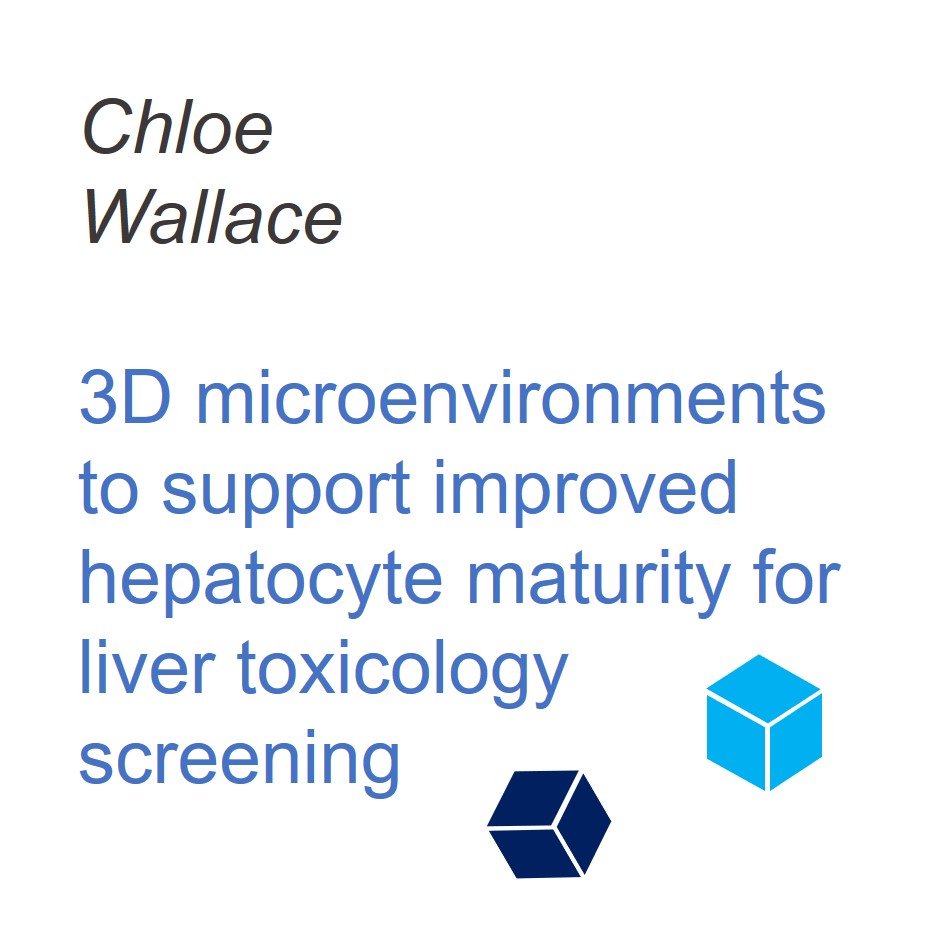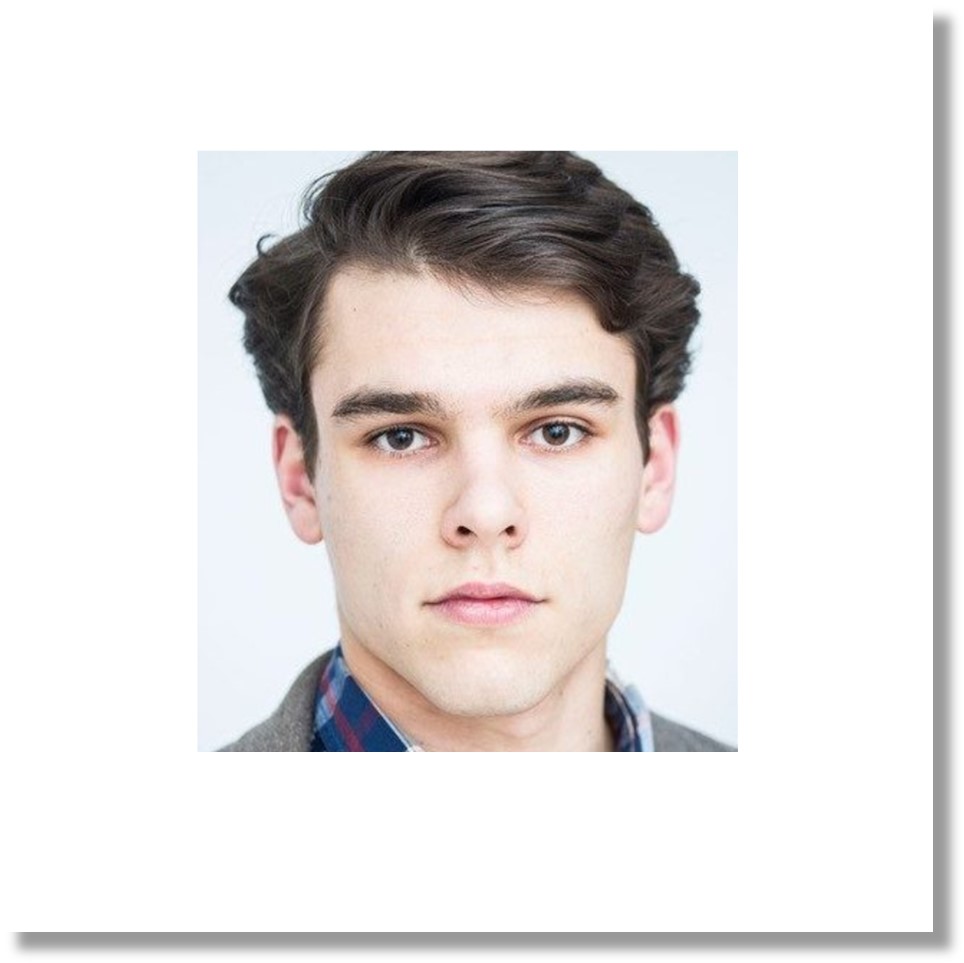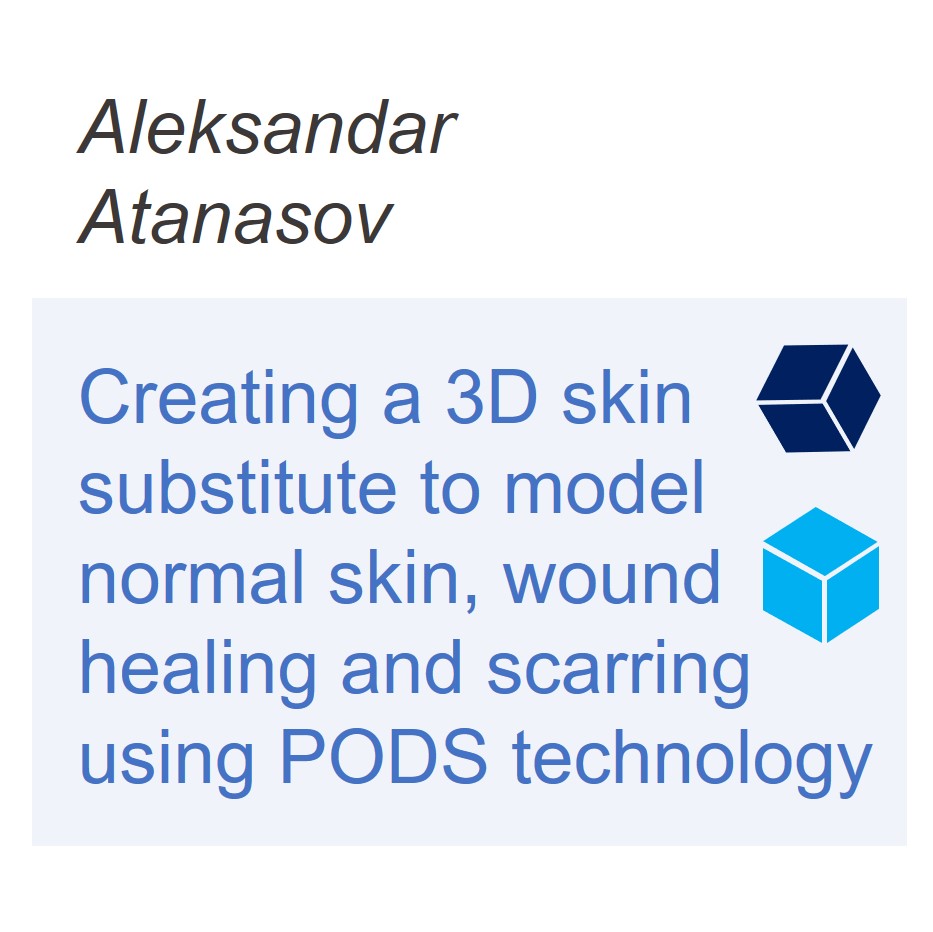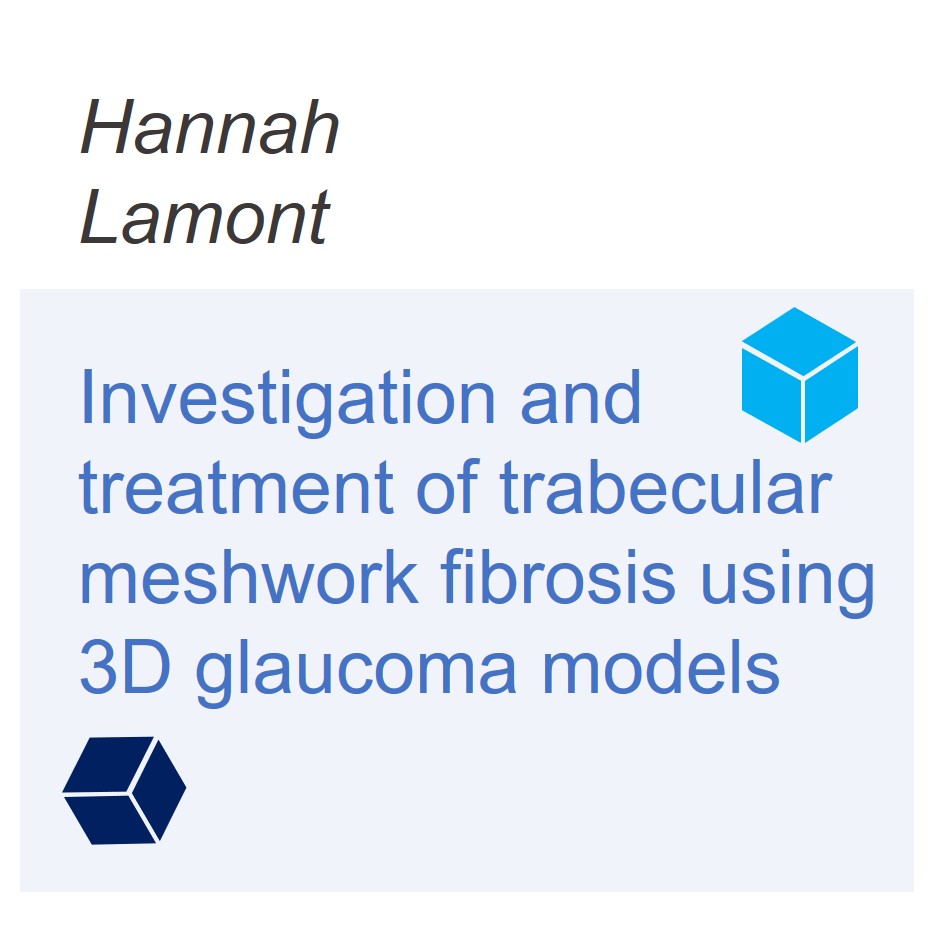Partnering with universities to train the next generation of scientific leaders
PODS® PhD students



Chloe Wallace, UNIVERSITY OF GLASGOW
3D microenvironments to support improved hepatocyte maturity for liver toxicology screening
Liver toxicology assays in drug screening is a major area of Pharma research. Use of animals in the field in prevalent and alternatives are urgently required. Cell Guidance Systems have developed spheroid culture assays that require better phenotypical stability. It is likely that appropriate 3D culture, using hydrogels, will be key to achieving this. However, normally such models rely on matrices with poor batch to batch reproducibility derived from animal products such as collagen.
In this project, we will design new in vitro models using peptide-based gels. The project will be highly multidisciplinary, and involve aspects of synthesis, gel formation and characterisation, as well as using the gels as cell scaffolds. Our ultimate aim is the development of bio- and mechano-optimised scaffolds that support hepatocyte spheroid phenotype.
Primary supervisor: Prof. Dave Adams
Secondary supervisor: Prof. Matthew Dalby and Prof. Manuel Salmeron-Sanchez


Aleksandar Atanasov, UNIVERSITY OF BIRMINGHAM
Creating a 3-dimensional skin substitute to model normal skin, wound healing and scarring using PODS® technology
Cell Guidance Systems occupies modern research facilities on the Babraham Research Campus near Cambridge. Babraham provides a vibrant research atmosphere for over 1,000 researchers and hosts some of Europe’s most successful biotech companies. In addition to our own well-equipped labs, we have access to shared facilities on the campus.
PODS® technology is the primary research interest of the company. The company has multiple programs of research and collaborations in areas as diverse as biomaterial development, Parkinson’s disease and osteoarthritis, amongst others.
The student would become part of the PODS® group and gain fundamental knowledge about PODS® biology. During their time at the company, the student will be expected to produce at least one PODS® protein that they will use in their own research. They will also be expected to work closely in collaboration with our recent KTP Associate – a PhD level materials scientist who joined the company last year.
In addition to R&D activities, the company has a commercial division which offers research products and services. The candidate will take part in meetings and gain valuable exposure to commercial activities. This will prepare them to understand the commercial world, and will be particularly useful if they remain in academia.
Primary supervisor: Prof. Anthony Metcalfe
Secondary supervisor: Prof. Liam Grover


Hannah Lamont, UNIVERSITY OF BIRMINGHAM
Investigation and treatment of trabecular meshwork fibrosis using 3D glaucoma models.
The development of safe and effective therapies to treat fibrosis is a major priority for patients with glaucoma. This ocular disease is characterised by elevated intraocular eye pressure (IOP), resulting from ineffective drainage of the aqueous humour. This in part is caused by the blockage of the aqueous humour outflow due to increased extracellular matrix deposition in the trabecular meshwork (TM). Over time, the increased pressure can damage structures in the eye resulting in vision loss. The lack of safe and effective anti-fibrotic treatments presents an important clinical challenge and therefore, there is an urgent unmet need to identify novel targets for anti-scarring drug development.
Together with a team consisting of ocular biologists, biomaterial scientists, tissue engineers, and clinicians and, with both international (USA) and industrial placements (Cell Guidance Systems Ltd), this PhD project will develop, for the first time, state of the art in vitro and ex vivo human and porcine models to induce and treat scarring that occurs in the eye’s anterior segment in glaucoma. Once developed, these models will be used to screen new anti-scarring treatments suitable for further translation into the clinic.
Primary supervisor: Dr. Lisa J. Hill
Secondary supervisor: Prof. Liam M. Grover and Prof. Alicia El Haj


